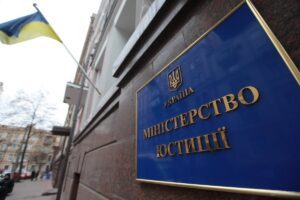
Ukraine intends to increase the inflow of foreign direct investment (FDI) by 2025 to $15 billion per year, while at the end of 2020 their outflow amounted to $420 million, and in 2021 the National Bank predicts a recovery in FDI inflows at the level of $3 billion.
The targets are enshrined in the National Economic Strategy 2030 posted on the government’s website.
According to it, Ukraine should at least double its real gross domestic product (GDP) in 10 years.
Target indicators are also the following: an increase in exports to $150 billion compared to $49 billion in 2020, an increase in labor productivity by at least 1.7 times, and a decrease in the unemployment rate from 8.6% to 6% in 2030.
As indicated in the strategy, the share of the public sector of the country’s banking system by 2030 should be reduced to 25% from the current 54%.
At the same time, the document contains the intention of the Ukrainian government to keep the state budget deficit at the level of 2-3% of GDP, and the ratio of public debt to GDP at 30-40%.
As for the trade priorities of the state until 2030, here the document sets out plans to increase the share of small and medium-sized businesses of total exports to 40%.
International trade should also be facilitated by the reduction of the time for passing customs procedures to average European indicators, as well as the synchronization of the work of the customs authorities.
In addition, the National Strategy provides for an increase in the share of investment imports by at least 30% by 2030.

The National Bank of Ukraine (NBU) has for the first time defined the list of critical infrastructure facilities in the banking system, which includes 13 banks, the press service of the regulator said on Friday.
The list includes PrivatBank, Oschadbank, Ukrgasbank, Ukreximbank, Raiffeisen Bank Aval, FUIB, Alfa Bank, OTP Bank, TAScombank, Universal Bank, UkrSibbank (all are based in Kyiv), Pivdenny Bank (Odesa) and A-Bank (Dnipro).
The list was approved by NBU Board decision No. 148 dated April 20, 2021 on critical infrastructure facilities in the banking system of Ukraine.
The facilities of critical infrastructure include banks, the stable operation of which ensures the stability of the banking system, it is essential for the economy and security of the state, the functioning of society, and which are of significant public interest. In particular, these are banks that are included in the list of systemically important banks, and banks in which the state directly or indirectly owns more than 75% of their charter capital.

The Ukrainian government has allowed the Ministry of Justice to engage a legal advisor to defend the state in an Oleh Zhukovsky’s $300 million lawsuit filed on January 4 this year against the National Bank of Ukraine with the United States District Court for the Southern District of Florida. According to an explanatory note to the document, the National Bank received a statement of claim on February 5 this year, after which it turned to the Ministry of Justice for help. On March 11, an interdepartmental working group was created to protect the interests of the state in this case, which considered it necessary to involve the advisor.
According to the lawsuit, Zhukovsky is seeking to recover $102.2 million of the principal amount of the debt and the interest, penalties and fines on deposits in Brokbusinessbank, invested by companies ZUKK Trading Limited, Intertransgroup LLC and ex-MP from the Yulia Tymoshenko Bloc Mykola Kovzel and his assistant Vitaliy Didylivsky in 2012-2013. They transferred the rights to compensation for losses to Zhukovsky, who engaged Shutts & Bower in the lawsuit.
It claims that the officials of the National Bank were “accomplices” of the scheme for allegedly withdrawing money from Brokbusinessbank by business man Serhiy Kurchenko, and after a part of the funds in the amount of $172 million was returned as a result of special confiscation in 2017, they sent them to pay interest on eurobonds of Ukraine to American mutual funds including Franklin Templeton Investments, T. Rowe Price and TCW.
According to the lawsuit, criminal cases of embezzlement related to the case are being investigated in Ukraine and the United States, which corroborates the plaintiff’s charges. In addition to Brokbusinessbank and Kurchenko, who bought it in 2013 without the permission of the Antimonopoly Committee of Ukraine and his Real Bank, the plaintiff also accuses ex-Governor of the National Bank Serhiy Arbuzov, who allegedly assisted them and Ihor Sorkin, who replaced him, as well as Viktor Yanukovych, who was then President of Ukraine. The list of those involved also included Valeriya Gontareva, who became governor of the NBU after the escape of Yanukovych, under whom the deposits in Brokbusinessbank could not be returned.
In addition, the list of those involved contains ex-owners of PrivatBank Ihor Kolomoisky and Hennadiy Boholiubov, their American partners Mordechai Korf and Uriel Laber, companies from the Optima group, as well as Ukrnafta and PrivatBank. The lawsuit alleges that the ex-owners of PrivatBank were involved in laundering Kurchenko’s money and buying real estate in the United States using this money.

The single counterparty exposure limit (H7, should be no more than 25%) as of February 1 was violated by Prominvestbank (65.76%), Industrialbank (50.9%) and Sberbank (52.37%), according to the website of the National Bank of Ukraine (NBU).
According to the regulator, the related party transactions exposure limit (H9, should not exceed 25%) was violated by Megabank (28.43%), First Investment Bank (51.46%) and Unex Bank (28.71%).
The limit on bank total long open FX position (L13-1, should be no more than 10%) was violated by Prominvestbank (93.24%), Oschadbank (127.7%), PrivatBank (103.67%) and Industrialbank (10.6%).
The limit on bank total short open FX position (L13-2, should be no more than 10%) was violated by Prominvestbank (93.28%).

The single counterparty exposure limit (H7), the value of which should be no more than 25%, was violated by Ukreximbank (33.57%), Industrialbank (74ю66%), Prominvestbank (77.25%), Oschadbank (28.37%), Misto Bank (38.13%) as of August 1, 2020, according to a posting on the website of the National Bank of Ukraine (NBU).
The central bank said that the related party transactions exposure limit (H9, the requirement is no more than 25%) was violated by Megabank (51.94%), First Investment Bank (59.23%), Unex Bank (30.55%), Motor Bank (49.85%).
The limit on bank total long open FX position (L13-1), the value of which should be no more than 10%, was violated by Prominvestbank (130.6%), Oschadbank (128.8%), PrivatBank (89.12%) and Industrialbank (16.37%).
Prominvestbank (132.89%) violated the limit on bank total short open FX position (L13-2, the value should be no more than 10%).
Arkada Bank (60.23%) violated the limit in bank short open position on all currencies (LCRвв, the value should be no less than 100%).

Тhe Board of the National Bank of Ukraine (NBU) will remain a team and is ready to work further, adhering to the current policy to maintain the stability of the economy in Ukraine, but subject to maintaining their right to make decisions independently, First Deputy Governor of the NBU Kateryna Rozhkova said on Thursday.
“The NBU Board made a rather difficult decision to stay working now… We see our task not only in maintaining macrofinancial stability, but also independence and the institutional capacity of the NBU – and this is, in fact, key conditions – hoping that they will be supported, we remain working,” she said during an online meeting of the NBU Board with business, a meeting’s participant from the business told Interfax-Ukraine.
Rozhkova added that the NBU Board seeks an open and effective dialogue with the government, since only in cooperation it sees an opportunity to ensure the further development of the country.
“The board remains in office for the term of its tenure, and I don’t think that one-man show is here, decisions are made collectively. Therefore… changing the policy or changing the course with this team will be impossible,” NBU Governor Yakiv Smolii said at the meeting.
He also said that he sees no reason to change developments and the course that the central bank has chosen. “Therefore, we will hope that everything will be fine and will move in the direction in which we are working now,” Smolii said.
The governor of the NBU said that the IMF and stakeholders who worked on the placement of eurobonds should not “focus on personalities.”
“First of all, we are working and worked with institutions. If we say that we continue to preserve the principles that were laid down, such as institutional independence, then I see no reason for there to be any radical changes both in our policy and [relations] with investors,” he added.
According to Smolii, speaking of political pressure on the central bank, he had in mind the draft resolution on assessing the activities of the governor of the NBU recommended by the parliamentary committee on finance, tax and customs policy, lawsuits and decisions, as well as the submission from 64 MPs to the Constitutional Court of Ukraine about compliance of banking law required for cooperation with the IMF with the Constitution.
“Thus, the deputies want to disrupt cooperation with the IMF – only the approval of this law was the benchmark of our current program, and they also want to “help” in the fight for PrivatBank,” he said.
He called frequent public criticism of the central bank by the NBU Council and an attempt to discredit the Board by Head of the NBU Council Bohdan Danylyshyn as another element of pressure.
“We see a direct political motivation for the positions and decisions of some individual members of the NBU Council, in particular the head. I recall that the head of the NBU Council has repeatedly publicly expressed his position regarding negotiations with the former owners of PrivatBank, de facto about returning the already healthy bank, which the state has capitalized, to them,” Smolii said.
He also recalled the unjustified, according to the NBU, refusal to include the extension of the powers of Deputy Head of the National Bank Oleh Churiy, whose tenure ends on July 10, in the agenda of the meeting of the NBU Council on June 30.
“With the pressure in which we have been living for more than a year, when people speak black and white, when low inflation is “a disaster for Ukraine,” it’s impossible to continue to do the things that we do. This is my challenge in order to preserve the independence of the central bank, to preserve the institutional ability that we tried to maintain,” the NBU governor said.
Smolii also said that after his resignation under the NBU law, Rozhkova will have the powers of the NBU board head, if the appointment of a new board does not occur on that day.
During the meeting, business representatives thanked Smolii for his work.